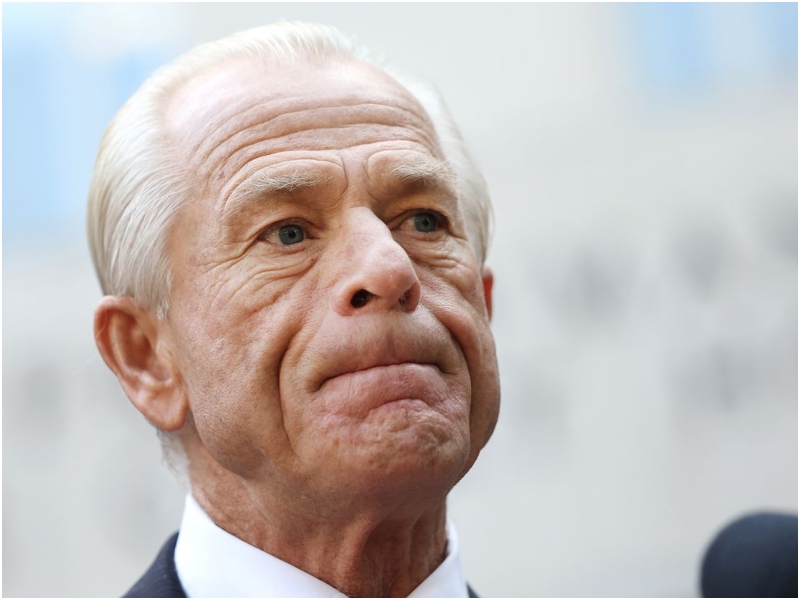Former White House trade adviser Peter Navarro, who served under the administration of Donald Trump, is seeking to avoid prison time as he appeals his conviction for contempt of Congress.
Navarro has petitioned the U.S. Supreme Court to prevent his incarceration following a decision by the U.S. Court of Appeals for the District of Columbia to deny his request to remain out of prison pending his appeal.
The appellate court ordered Navarro to surrender to federal authorities by March 19.
Navarro’s emergency application, directed to Chief Justice John Roberts, argues against the appellate court’s ruling, citing what his attorneys describe as the unprecedented nature of his conviction.
They highlight that Navarro is the only former senior presidential advisor to face prosecution for contempt of Congress after asserting executive privilege on behalf of the former president.
Navarro’s attorneys assert that he reasonably believed he was obligated to assert executive privilege and that there is no dispute that he did so in response to a congressional subpoena.
The conviction stems from Navarro’s refusal to comply with a subpoena from the House Select Committee to Investigate the Jan. 6 attack on the U.S. Capitol.
Prosecutors argued that Navarro possessed crucial information relevant to the investigation into the events surrounding the pro-Trump riots. Despite facing multiple requests and a subpoena for records, Navarro did not comply.
Navarro was found guilty on two counts of contempt of Congress in September 2023. U.S. District Judge Amit Mehta subsequently sentenced him to four months in prison and imposed a fine of $9,500. Navarro’s application to the Supreme Court alleges that the judge restricted his ability to present a full defense while allowing the prosecution significant leeway.
Navarro’s defense team contends that his prosecution, particularly the rejection of his privilege defense, represents a historical anomaly.
They argue that it is unclear whether Congress intended to punish senior presidential advisors who, in good faith, refused to comply with congressional subpoenas based on a belief in their duty-bound assertion of executive privilege. Navarro’s application suggests that the Department of Justice’s pursuit of his prosecution diverged from its historical approach.
Navarro’s appeal raises significant questions about the boundaries of executive privilege and the extent to which senior presidential advisors may invoke it in response to congressional inquiries.
As the legal battle continues, Navarro awaits the Supreme Court’s decision on his request to remain free pending appeal.

